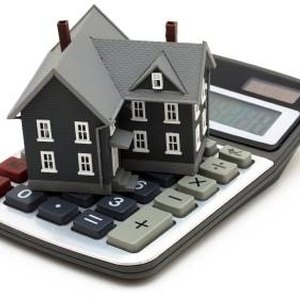
Whether you're a real estate investor looking for a bargain or curious about how much a current owner paid for a home when they bought it, the process to find the outstanding balance on a home can be accomplished in several ways--from simply asking to examining real estate records.
Tips
There are several ways to find out how much is owed on a home. You can ask the homeowner directly, speak with the lender or search the local newspaper for foreclosure amounts.
Ask the Homeowner
The easiest way to determine how much is still owed on a house is to ask the homeowner. Request to see their most current mortgage statement for all mortgages. Be sure to inquire if there is more than one mortgage on the property.
Legal Section of the Newspaper
If a home has entered foreclosure and is preparing for auction, it will likely be listed in the local newspaper's Legal section. This section will give the property details, lender information, date of auction and balances outstanding on each of the mortgages.
Ask the Lender
A homeowner may sometimes be hesitant to share financial documents with you. In such case, ask the current homeowner for permission to contact the lender on all mortgages. You can call the lender in advance and ask how permission may be granted and then tell the homeowner what you need to accomplish this.
Review Default Notices
While it varies by county, some county clerk offices have a "default" section on their website. You can easily see if this exists by simply calling the county clerk's office or by visiting their website. Those that have a page like this will list the property information, date of default and the balances owed on each of the mortgages on the property.
Check the Recorded Deed
Although looking at a recorded deed won't tell you how much is owed on a house, you may be able to do some basic math and at least figure a ballpark range for the remaining balance. The office of deed recordation, which is often at the courthouse, keeps all recorded deeds. You may also find supporting paperwork for the home's original sales price. By using an online amortization calculator, you can plug in additional values, even though they are estimates, for the term of the loan and interest rate. This may at least give you a ballpark estimate if your other searches are unproductive.
A Note About Second Mortgages
It is important to know how many mortgages exist on the property if you're going to go to the trouble of researching the balances due. It's not uncommon these days for homes to have two mortgages. Be sure to ask for information on all the mortgages, not just the first.
Other Balances Owed
Keep in mind that there may be judgments, liens and other encumbrances on a property. Always review both the tax records (available through the county clerk or treasurer office of the county in question) and information from the lender(s).
References
Writer Bio
This article was written by the CareerTrend team, copy edited and fact checked through a multi-point auditing system, in efforts to ensure our readers only receive the best information. To submit your questions or ideas, or to simply learn more about CareerTrend, contact us [here](http://careertrend.com/about-us).
